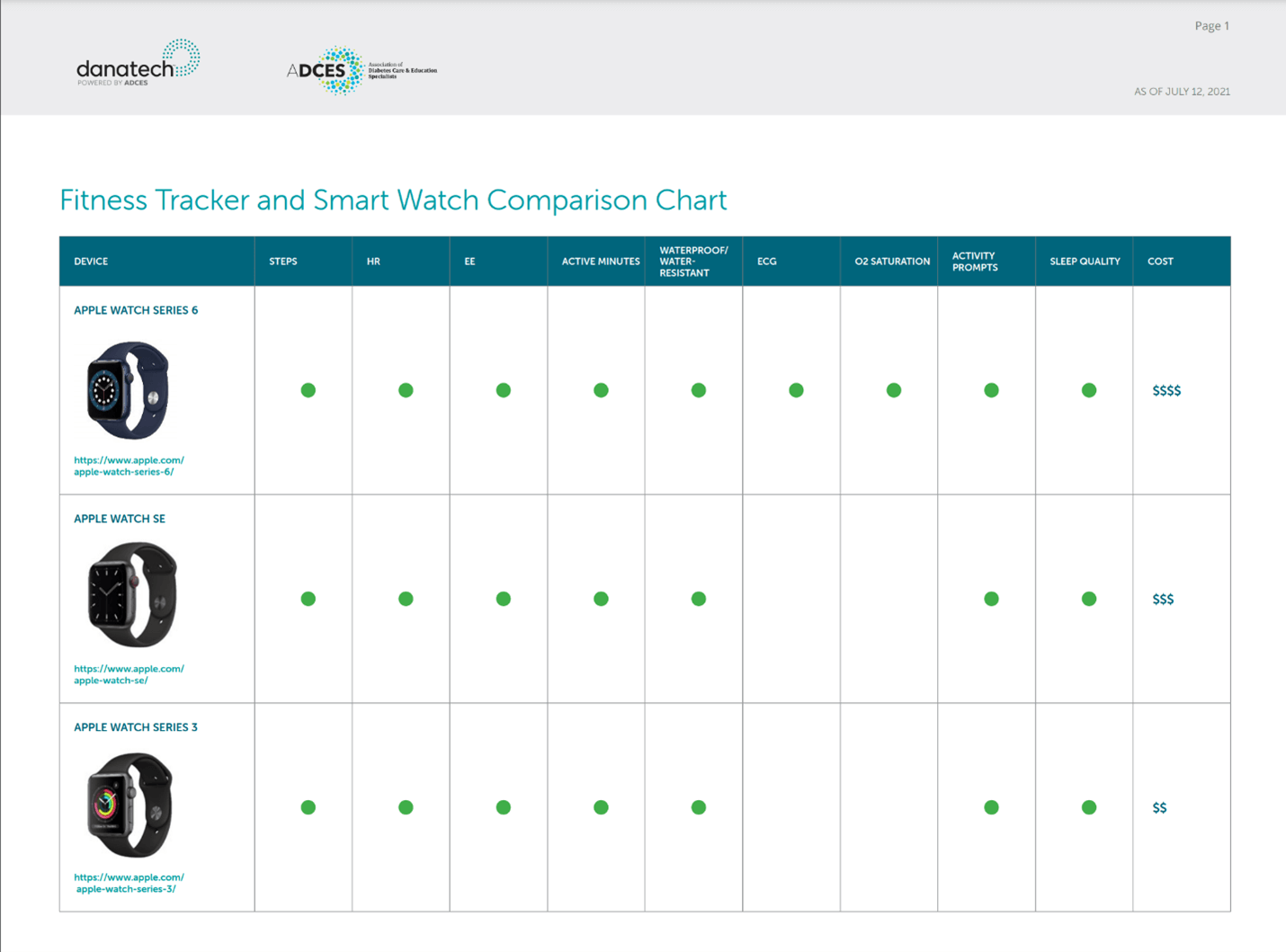Smart Watches and Fitness Trackers: 5 Lessons Learned to Help People with Diabetes Be More Active
Sep 7, 2021, 16:18 PM
By Vivian N. Ayuk, PharmD, CDCES, Pharmacy Manager/Diabetes Care and Education Specialist, FLEXCARE Pharmacy, Washington D.C.
Three years ago we piloted the use of a fitness tracker in our diabetes prevention program to increase physical activity. It was a huge success! So when provided another opportunity to use a different technology tool in a DSMES pilot, we jumped at it. However, this time it did not produce the outcomes we had hoped for.
We spent a considerable amount of time figuring out what made the first attempt a success. These lessons learned have helped shape our policies and continue to guide how we approach conversations about technology use and matching people with appropriate devices.
- Understand the need for a device. There are so many reasons why a person might want to use a device such as a smart watch or a fitness tracker. Understanding that need and desired goals should guide recommendations when consulted.
- Talk about cost. Cost can be a deal breaker. Not everyone can spend g a relatively significant amount of money to acquire a fitness device. Discussions about cost at the beginning can be very helpful.
- Determine your comfort level. Device recommendations need to consider the user’s comfort level with technology. We need to evaluate their readiness and address any potential barriers. Most of the participants in our programs are seniors and new to fitness devices. We are always looking at devices that can be used successfully by beginners and advanced users alike. Consider the ability to customize settings and integrate data generated with other software or technology tools.
- Keep it simple. Devices that are user friendly and minimize the setup process are very appealing. Starting a new routine can be challenging for many. Making the adoption of the device easy and seamless can go a long way to increase engagement and improve outcomes.
- Incorporate training and support. One key to success is spending time early in the process to provide training and technical assistance to educators and participants. Ongoing education and support can boost confidence levels and increase long term use of the device.
Fitness trackers and smart watches can be effective tools in improving physical activity. Given the constant changes in devices and technology tools, staying up to date can be a very daunting task. As a diabetes care and education specialist, having access to danatech.org has been invaluable.

For a full breakdown of the various fitness trackers and smart watches, check out a new comparison chart on danatech.org (an ADCES member-only website). The chart provides a quick reference guide with information on the pros and cons of the different devices and cost. The use of the chart in a shared decision-making process also provides an opportunity to discuss the limitations of fitness devices allowing the person to set realistic expectations.
ADCES Perspectives on Diabetes Care
The Association of Diabetes Care & Education Specialists Perspectives on Diabetes Care covers diabetes, prediabetes and other cardiometabolic conditions. Not all views expressed reflect the official position of the Association of Diabetes Care & Education Specialists.
Copyright is owned or held by the Association of Diabetes Care & Education Specialists and all rights are reserved. Permission is granted, at no cost and without need for further request, to link to, quote, excerpt or reprint from these stories in any medium as long as no text is altered, and proper attribution is made to the Association of Diabetes Care & Education Specialists.
HEALTHCARE DISCLAIMER: This site and its services do not constitute the practice of medical advice, diagnosis or treatment. Always talk to your diabetes care and education specialist or healthcare provider for diagnosis and treatment, including your specific medical needs. If you have or suspect that you have a medical problem or condition, please contact a qualified health care professional immediately. To find a diabetes care and education specialist near you, visit DiabetesEducator.org/Find.